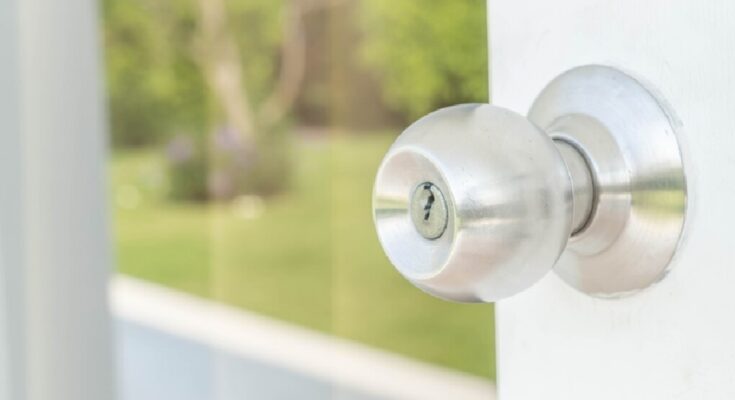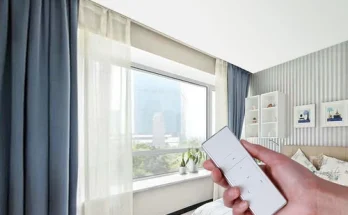Both landlords and tenants are responsible for the safety and functionality in rental properties. Door locks are one area where these responsibilities intersect. Broken door locks can cause concerns regarding security, convenience and compliance with housing law. Who is responsible for fixing the broken door lock? The landlord or tenant? We’ll take a look at some of the factors that determine who is responsible for replacing or repairing door locks in rental properties.
Understanding Your Landlord’s Responsibilities
A landlord is usually responsible for maintaining and providing a habitable, safe property. It is important to ensure that all entry points such as windows and doors have locks that are functional, allowing tenants adequate security. The “warranty for habitability” is the legal term that explains this responsibility. It requires landlords keep their property in a safe and livable state. The landlord will usually be required to replace or repair a broken lock if it compromises safety or security.
Many state and local laws require that landlords install secure locks at doors and windows – especially the main entry points. Housing codes may consider this a violation, and the landlord could be held responsible if negligence results in property damage or injuries.
Landlords are responsible for broken locks
In several situations, a landlord is responsible for repairing a door lock that has broken.
- Locks can wear out or stop working due to normal use over time. The landlord is usually responsible for replacing or repairing a lock that stops working because of wear and tear. The landlord has a duty to perform routine maintenance in order to maintain the property’s habitability and security.
- Faulty installation or defective lock: The landlord must address this issue if the lock is not working properly or has a defect. This will maintain the security of the property. The landlord should repair or replace a lock that is not working correctly or fails too soon. This could compromise the tenant’s safety.
- Landlord Safety and Security for Tenants: If a broken lock makes the property unsafe (such as if the front door lock is no longer securing properly), the landlord must fix it. Landlords are responsible for providing tenants with safe entryways. This includes a lock that is not working or has been compromised on an exterior entrance.
- Break-ins or Vandalism: If a property is damaged by a vandal or break-in, it’s the landlord’s responsibility to restore the security of the building. This usually involves replacing or repairing a lock. It is important to ensure tenant safety following such incidents, and many landlords act quickly to secure the property.
A tenant may be responsible for a broken lock
There are some situations where a tenant could be responsible for the cost of repairs or replacements.
- Negligence and Misuse of the Lock by the Tenant. If a renter damages a lock due to negligence or misuse, he or she may be responsible for repair or replacement. If a tenant damages a lock through excessive force, or by trying to fix it without the proper tools or knowledge they may be responsible for any damage.
- Keys Lost or Stolen: A tenant who loses or has their keys stolen may be responsible for the cost to replace the lock, or rekey it. This is for security reasons. Some leases stipulate that tenants are responsible for these costs in the event they lose their keys. Others may require them to cover the cost of a locksmith service when a tenant is locked out.
- Modifications by the Tenant. If the tenant replaces or installs a lock on their own without permission from the landlord, the tenant may be responsible for any problems that result. Locks that are not up to standard or fail to meet the property’s security standards can be a problem if they are changed without permission. Before making any changes to the locks of a property, it is important to consult with your landlord.
How to Fix a Broken Doorlock as a Landlord
It is important that a tenant report a broken lock to their landlord or management company as soon as they discover it. This is a guide that will help tenants deal with the problem.
- Document the Issue: Take pictures or write down the issue, including what is wrong with the lock. Also include why it must be repaired. It is helpful to have documentation if you are in a dispute with the landlord or they do not respond quickly.
- Send a maintenance request: Inform the property manager or landlord in writing of the broken lock. Written requests are appreciated by most landlords as they help to prioritize repairs and provide a record of the problem.
- Follow up if necessary: If the problem is not resolved within a reasonable period of time, the tenant will need to escalate the issue or make a second request, particularly if there are security concerns.
- Understanding Tenant Rights. In certain cases, where the landlord has failed to fix a broken lock which affects the safety of the tenant, the tenant could have the legal right to either withhold the rent or to make the repairs and deduct them from the rent (if local laws allow it). Consult local laws on landlord-tenant relationships to better understand your options.
Lease Agreements – Addressing lock repairs
Some lease agreements specify the responsibilities of property maintenance including door locks. In some leases, landlords may be held responsible for repairs to locks due to wear and tears. Tenants could also be held responsible for damages or lockouts caused by tenants. It is important to review the terms of your lease in order to determine who is responsible for what types of lock issues.
When a tenant has a question about his or her responsibility, he or she can usually get the answer by talking to the landlord. To avoid confusion, some landlords will add clauses to the lease that address lockouts and key replacement costs.
Communication and Cooperation: Their Importance
A broken lock on a door can either be a minor inconvenience, or it could pose a serious safety risk. Communication and cooperation is key to resolving any issues, regardless of whether the responsibility falls on the landlord or tenant. Both landlords and tenants benefit from a secure and safe property. Therefore, addressing lock repair promptly is in both parties’ best interests.
Understanding the common scenarios and general responsibilities for lock repair can help tenants and landlords approach these situations with greater effectiveness. Understanding the roles of both parties is important for a mutually respectful and safe rental experience.
This article was written with the help of an expert from Unico Locksmith. Unico Locksmith offers residential and commercial lock change, rekey service, automotive locksmith services, and locksmith qualified emergencies. Unico Locksmith is Maryland’s best locksmith. Locksmith Lanham MD today!




